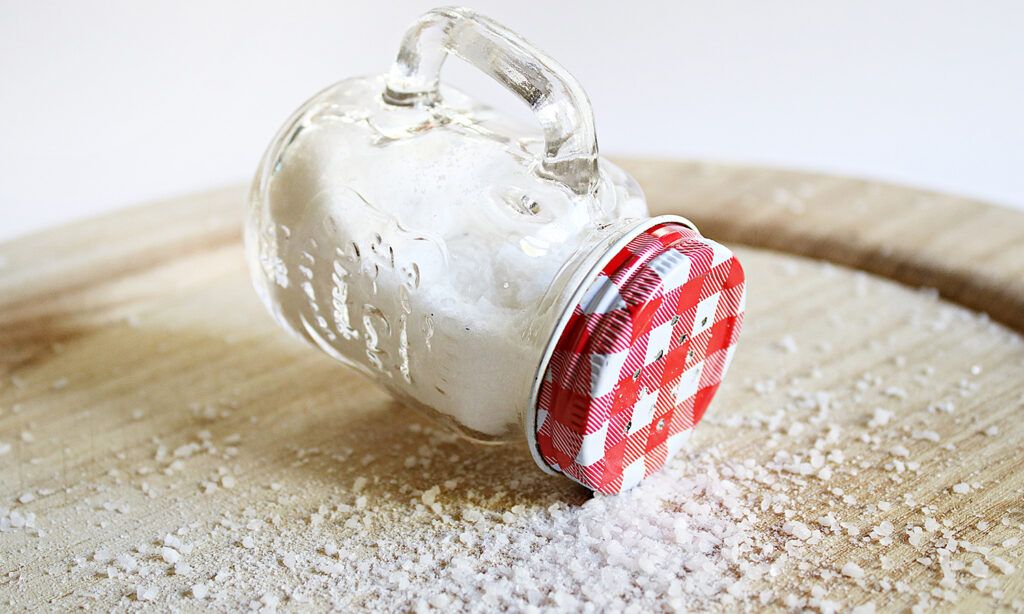
It’s likely that you indulge in a craving for salt from time to time. While listening to your body is important, it’s also valuable to monitor your intake of the substance due to its effects on your heart health.
A good portion of salt is made up of the mineral sodium. According to the Centers for Disease Control and Prevention (CDC), excess sodium causes higher levels of blood pressure which in turn increases the risk for heart disease and stroke. Collectively, these two diagnoses are the number one cause of death in Americans.
How Sodium Affects the Heart
Sodium is a mineral that’s essential for life. It’s regulated by your kidneys, and it helps control your body’s fluid balance. It also helps send nerve impulses and affects muscle function.
Too much salt in the body can:
- Raise Your Blood Pressure – Blood pressure is the force of blood against the walls of your arteries. When your blood pressure is at a high level for longer periods of time, your heart may become damaged from a decreased flow of oxygen to your heart.
- Make you Dehydrated – Dehydration occurs when your body uses more fluids than you take in. This may be a result of your kidneys’ attempt to regulate your body’s increased sodium levels. Your heart becomes affected as it would need to work harder and pump faster to make this possible.
- Harden Your Arteries – Higher levels of sodium cause blood vessel walls to tighten or harden. When this occurs over a longer time period, plaque may buildup and cause a blockage or heart attack.
According to the American Heart Association (AHA), more than 70% of the sodium we consume comes from packaged, prepared and restaurant foods. The rest of the sodium in the diet occurs naturally in food (about 15%) or is added when we’re cooking food or sitting down to eat (about 11%). So even if you never add salt for flavor to a meal, your diet may contain too much sodium. With an awareness of how sodium affects your heart and a few slight lifestyle changes, you can improve your overall heart health.
Limiting Salt In Your Diet
You do not need to completely eliminate salt from your diet to decrease your risk of heart disease and stroke. Salt is actually necessary in your diet to help control fluctuating fluids and to keep your cells healthy and working harmoniously together. The daily suggestion for salt intake is less than 2,300 milligrams or one teaspoon. A few tips to help decrease salt intake are:
- Eat more whole foods like fruits and vegetables.
- Use different spices and herbs to add flavor to your meals in place of salt.
- Check labels at the grocery store and purchase items with lower sodium content. Go for options that have a “reduced sodium” label.
- Increase your intake of potassium to help counteract sodium’s effect on blood pressure. Some foods with high concentrations of potassium include bananas, potatoes, tomatoes, and spinach.
In addition to diet changes, exercise is a great way to help improve your heart health. Just thirty minutes a day can make a difference. Walking, biking, and calisthenics are a few options to try out to ease into an exercise routine.
If you have any concerns about your heart health, do not wait to schedule an appointment with your primary care provider. He or she can give you an understanding of the current state of your heart by measuring your heart rate and blood pressure. If any additional tests are needed, a referral to a cardiologist will be made to ensure you get the care you need.
Darcie Desiderio, DNP, CRNP, is with UPMC Heart & Vascular Institute and sees patients at UPMC Muncy, 10 Shady Lane, Muncy, and UPMC Specialty Care, 2230 Saint Mary St., Lewisburg. To schedule an appointment with Dr. Desiderio, call 570-321-2800. For more information, visit UPMC.com/HeartNCPA.


